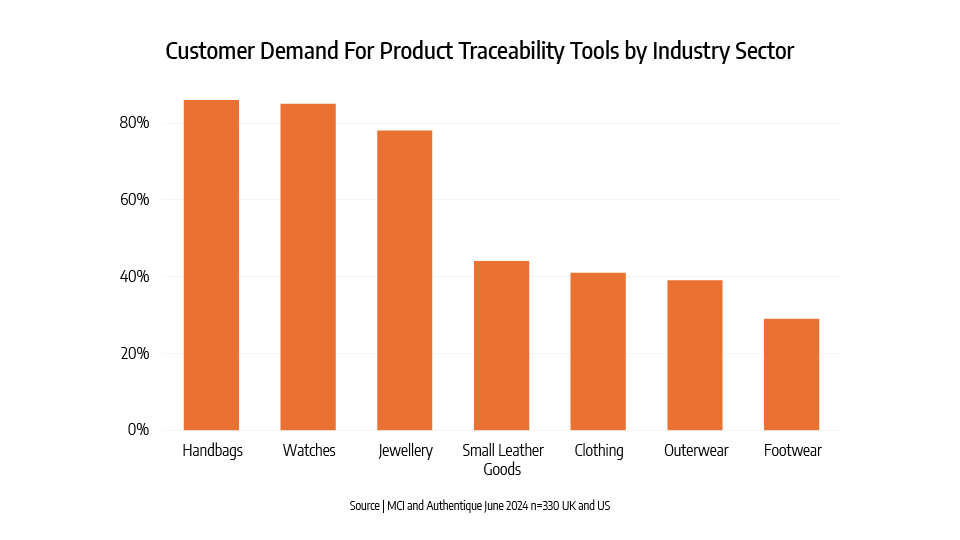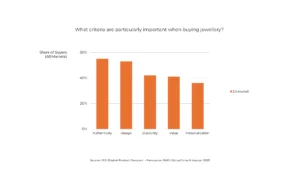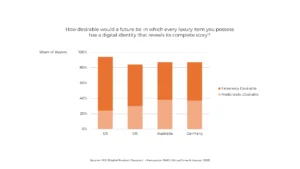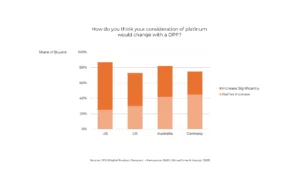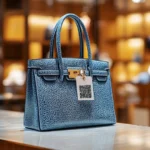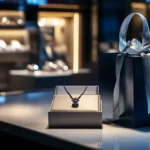Recent research shows that customer demand for product traceability tools, such as digital product passports, is highest in luxury accessories. Over 80 percent of consumers in the UK and US want traceability for handbags and watches, and 78 percent for jewellery. Demand is much lower for categories like footwear and outerwear. (Source: MCI and Authentique June 2024)
Interpretation
For platinum jewellery professionals, this indicates a strong appetite among customers to understand the origin, authenticity and journey of their pieces. Jewellery sits close to watches and handbags in perceived value, suggesting that traceability has become an expected feature rather than a bonus in this sector.
Insight
Customers buying high value items like platinum jewellery are motivated by emotional factors such as trust, pride and personal connection. Traceability tools help reinforce these feelings, allowing clients to feel confident about the integrity of their purchase and proud to share its story.
Implication
Retailers and manufacturers should consider integrating traceability into their marketing and sales approach. Highlighting transparent sourcing and authentic craftsmanship can justify premium pricing and build deeper brand loyalty. On the showroom floor, sales teams can use this information to engage customers in richer, more personalised conversations.
Opportunity
There is an opportunity to differentiate platinum jewellery offerings by providing a seamless and accessible traceability experience. Implementing digital product passports or similar tools can position a brand as forward-thinking and customer-centric, helping to attract new buyers and retain existing ones.
Recommendation
Professionals should start by reviewing current supply chain documentation and exploring partnerships with traceability technology providers. Training sales staff to confidently present traceability details can immediately improve customer interactions and support higher value sales.

